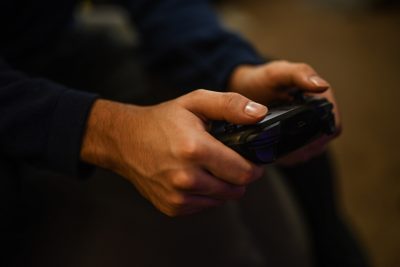Although intramural athletes cannot participate in in-person competition this semester, Boston University’s Intramural Sports Department has found a solution: video games.
On BU Intramural Sports’ IMLeagues profile, the only offerings for the Fall 2020 semester are some of the most popular sports-simulator games. Students have the option to enter brackets for “FIFA 2020,” “Madden NFL 2020,” “NBA 2K20,” “NHL 20” and “Rocket League.”

A side effect of this change is that video games, unlike physical sports, are mediated by the specific hardware a person has bought, especially when a game does not support cross-platform play. Games offered as intramurals for this semester, excluding “Rocket League,” are thus divided into separate brackets: one for Playstation 4 and another for Xbox One.
Ryan Parsons, manager of Intramural and Club Sports, wrote in an email the decision to pivot to esports stemmed largely from its rising popularity on college campuses.
“E-sports is an up and coming trend in campus recreation nationwide,” Parsons wrote. “We have been discussing adding e-sports since last semester and took this as an opportunity to implement the new offerings.”
The University was receptive to the suggestion, Parsons added.
BU graduate student Andrew Benci, who works as a graduate assistant for Intramural Sports, said the pandemic sped up the process of offering intramural esports, but that he also hopes to return to in-person play in the future.
“Obviously, it’s our wish to return to normal,” Benci said. “We’re really hoping that we can get some stuff in person.”
This semester’s esports programming has already begun. Parsons wrote his team has divided the semester into two “sessions,” with Session 1 having ended Friday.
Despite the sudden transition to a new medium, intramural esports at BU have seen relatively few logistical issues. Internet connectivity in particular has not caused any problems thus far.
Benci, who had firsthand experience with the games this semester, said Intramural Sports offers screen recordings along with physical documents guiding students step by step through the participation process.
“For the most part, the only snafus that we’ve had so far have been with the third-party vendor [IMLeagues],” Benci said, “but it’s honestly been mostly user error.”
While sports-related video games draw significant users, the most popular games in the esports industry — such as “League of Legends” and “Counter-Strike: Global Offensive” — are absent from the lineup.
Parsons wrote the games chosen for this semester were selected based on the staff’s experience with those titles, but that BU is looking to add more over winter break.
“The games we chose were games that our staff had some familiarity with,” Parsons wrote. “We are going to use the gap between the fall and spring semester to gauge interest in other e-sport games that we would potentially offer.”
As for existing titles, continuation into next semester is being evaluated case by case, depending on the level of interest demonstrated in each game during the two Fall semester sessions.
Though the uncertain trajectory of the pandemic has left the timing of a return to physical sports unclear, the activities currently available have attracted students both with and without previous esports experience.
“We have a small group of participants that have previously competed in our traditional offerings,” Parsons wrote. “However, e-sports has primarily attracted a new demographic for our program.”
With this new wave of interest, Benci said he is confident Intramural Sports will continue offering esports after in-person intramurals ultimately return. He said, however, he doubts any real-life sports will be offered this Spring.
“The University is doing a good job keeping a handle on [COVID-19], but the City of Boston is not necessarily doing anything spectacular,” Benci said. “I think that will most likely end up with us having to do online intramurals.”
Intramural Sports supervisor Adam Alters, a senior in the Questrom School of Business, wrote in an email he is appreciative of esports as an alternative to competing in physical intramurals.
“I would personally be hesitant to play in person next semester if COVID is still around,” Alters wrote, “which is why I think it’s so great that we now have esports as an option for those who would maybe still be uncomfortable playing in person if that were available.”





















































































































